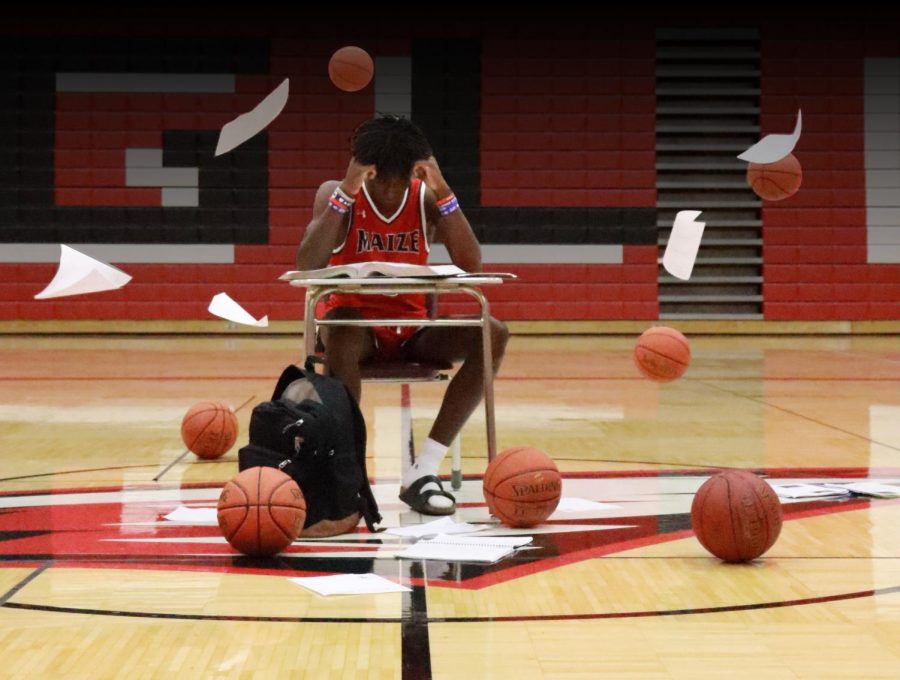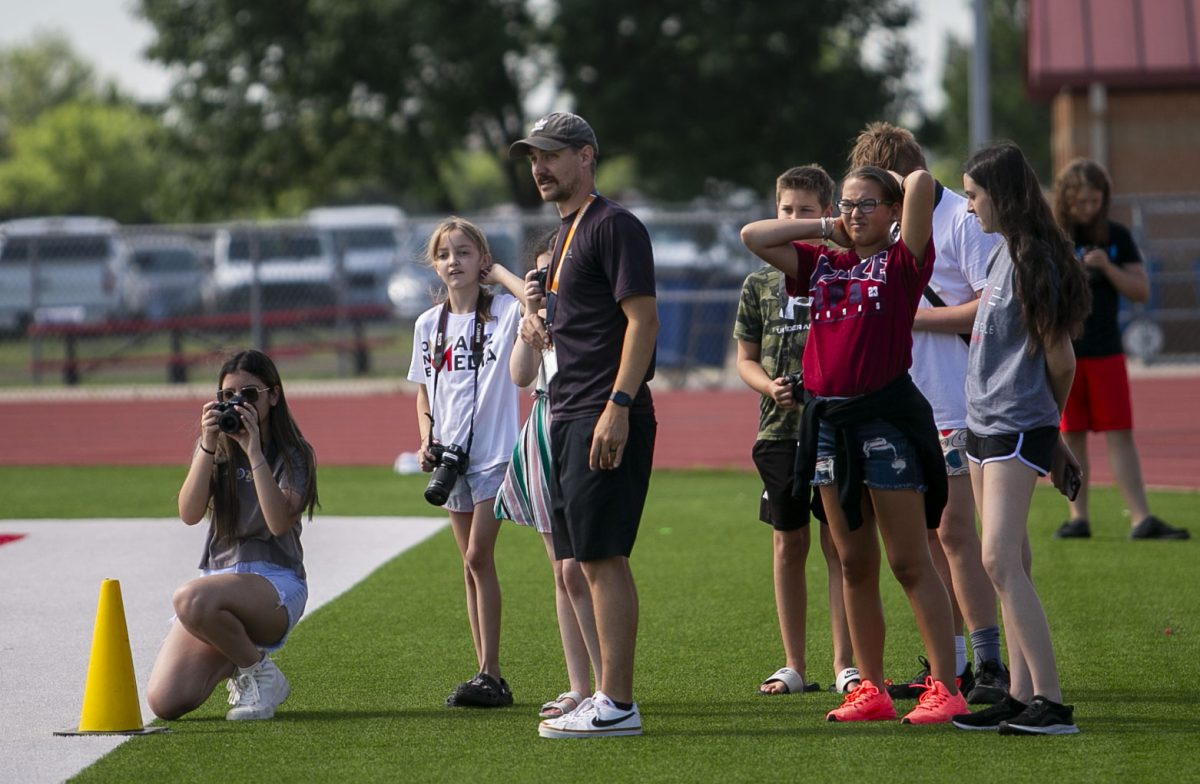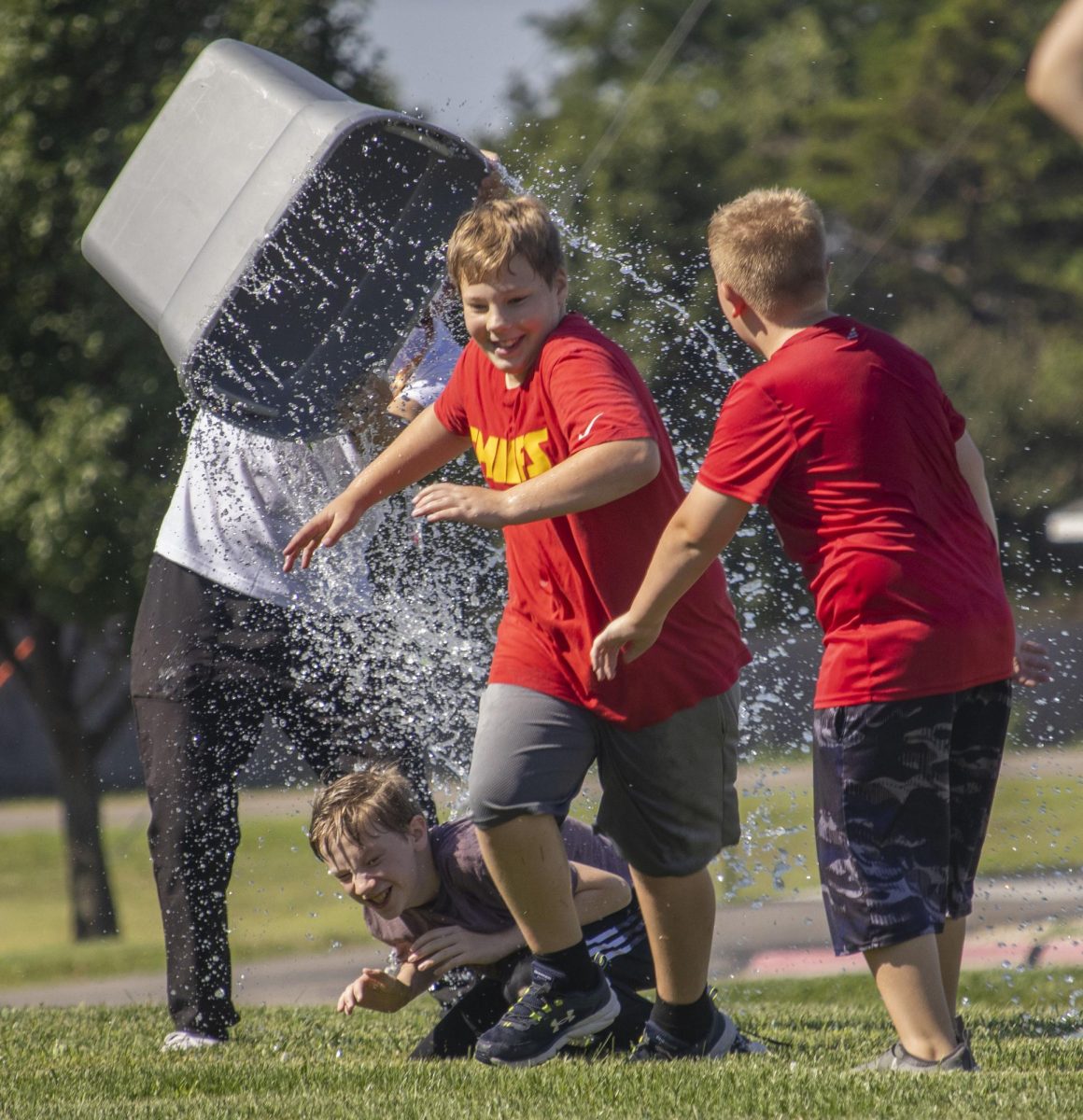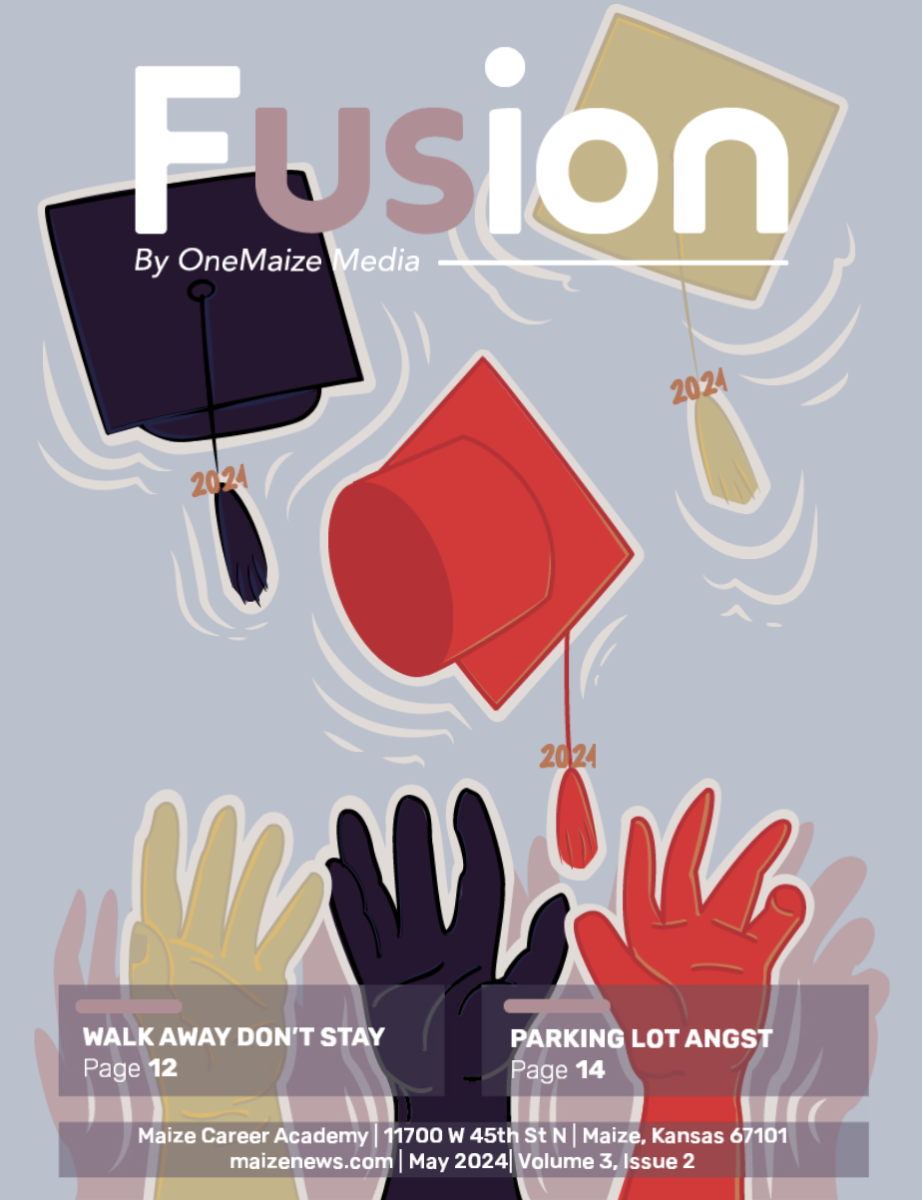Extracurricular tension
With sports outside of school, homework, and the worry of injuries, stress comes easily to student athletes of both Maize High and Maize South
Sophomore Alan Hanna is a multi-sport athlete, playing football, basketball, and track. Athletes battle against injuries and stress from homework.
November 16, 2022
If you’ve ever been a student athlete, you may recall late nights staying up to finish homework or studying for that big test before class. There may even have been a time when you felt too tired and strained to complete your work and credit may have been deducted on an assignment as a late penalty.
Student athletes at both Maize High and Maize South High spend a substantial amount of time playing the sports they love. Having an extracurricular activity on your schedule brings various benefits such as confidence in building relationships, developing a better understanding of yourself, and building foundations for lifelong fitness habits as stated by the National Federation of High School Associations.
However, when the balance between academics and sports is broken, it is likely almost imminent to project a great deal of stress on student athletes. Maize South athlete Kendall Shields is currently involved in cross country and found it difficult to deal with homework while being so tired after practice.
“Cross country affects my ability to stay motivated with schoolwork by making me more tired at the end of the day, so I have less energy to do homework,” said Maize South senior Kendall Shields. “Sometimes when I get home from practice all I want to do is take a nap, but instead I have to finish my homework.”
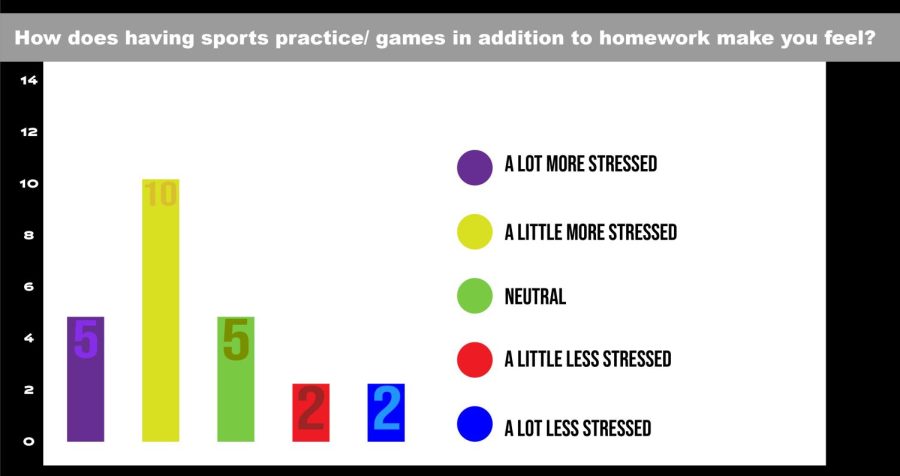
Practices run almost every weekday after school, which significantly reduces the amount of time a student has to complete homework, especially if that student is employed. On top of these things, we should consider that many student athletes are tired, sore, or mentally strained after practice.
Maize High senior athlete Teagan Redinger sometimes finds herself staying up past midnight working on homework after a big game.
“Sometimes student-athletes feel bombarded with school work and can struggle with keeping it all balanced,” said senior soccer player Teagan Redinger. “It can be hard to get three hours’ worth of homework plus practice after school, then athletes just have to stay up and miss out on sleep in order to complete the assignments.”
In spite of this challenge, Maize South athletic director, Lucas Smith, believes that involvement in student athletics actually promotes good academic performance and demands students earn great grades to compete.
“Most of the time when students are involved in an activity their grades improve throughout this process,” Smith said. “It’s when students are not in an activity we see more grade issues.”
So if involvement in student athletic activities promotes higher grade point averages, then why do so many student athletes feel such a heavy burden when it comes to completing schoolwork during sporting seasons?
Redinger credits soccer coach Jay Holmes for keeping her on track outside of practice hours.
Our coach holds us accountable for our grades,” Redinger said. “If we are failing or doing poorly in a class, he will talk to us about getting the grade up or our eligibility to play. — Teagan Redinger
In addition to the extreme hours students commit during the day to their sport, athletes often find their sleep level can really affect their health during the season. A survey was conducted consisting of student athletes from both Maize and Maize South high schools. Results show that soreness and injury cause just as much stress to our student athletes as academics. See the illustrated graph below.
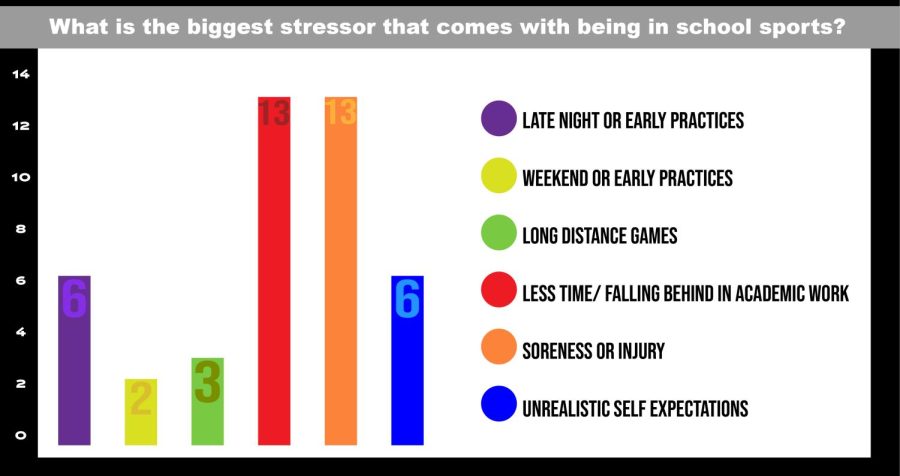
Injuries in sports happen more often than many would realize, as stated by the National Library of Medicine, an estimated 90% of student athletes suffer at least one injury throughout their sporting years. The recovery process is often painful, stressful, and downright depressing for athletes.
“Recovering from an injury is brutal,” Redinger said. “Watching your team play without you when all you want to do is play has to be the worst feeling.”
Injuries are especially common in student athletes who put a great deal of time and effort into their sport. Students who hyper-fixate on their sporting performance and improve their athletic prestige can experience burnout, exhaustion, and fatigue when not balanced with other aspects of life.
Shields is aware of her stress about actually competing on race day between races and in her everyday life.
“I put a lot of pressure on myself to improve and do good so it can be stressful at times when you’re always worrying about how your next race is going to go,” said Shields. “When you have a bad race, you start stressing out about if you will be able to bounce back during your next race.”
Redinger feels that athletes should reach out to those close to them for stability and take care of themselves both mentally and physically.
“Reach out to teammates if you are struggling,” Redinger said. “Your team is always there to support you and they want you back just as much as you want to be back.”

